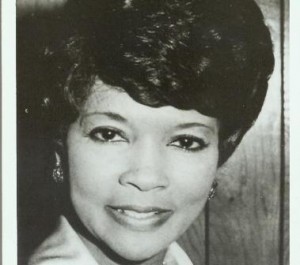Addie Loraine Cameron, better known as Addie L. Wyatt (1924 –2012), was born in Mississippi and moved to Chicago with her family in 1930. When she was 17 years old, she married Claude S. Wyatt, Jr.
She began working in the meatpacking industry in 1941. Although she applied for a job as a typist for Armour and Company, African American women were barred from holding clerical positions and she was sent to the canning department to pack stew in cans for the army. Due to a contract between Armour and the United Packinghouse Workers of America (UPWA), she earned more working on the packinghouse floor canning stew than she would have made working as a typist, and joined the UPWA after learning that the union did not discriminate against its members.
In 1953, she was elected vice president of UPWA Local 56. In 1954, she became the first woman president of the local, and was soon tapped to serve as an international representative. She held this position through the 1968 merger of UPWA and the Amalgamated Meat Cutters and Butcher Workmen until 1974, when she became director of the newly formed Women’s Affairs Department. In 1970s, she became the first female international vice president in the history of the Amalgamated Meat Cutters and Butcher Workmen and later served as director of its Human Rights and Women’s Affairs and Civil Rights Departments. She served as the first female African American international vice president of the UFCW after Amalgamated and the Retail Clerks International Union merged in 1979.
She and her husband were ordained ministers and founded the Vernon Park Church of God in Chicago. She played an integral role in the civil rights movement, and joined Dr. Martin Luther King, Jr. in major civil rights marches, including the March on Washington, the march from Selma to Montgomery, Alabama, and the demonstration in Chicago. She was one of the founders of the Coalition of Labor Union Women, the country’s only national organization for union women. She was also a founding member of the Coalition of Black Trade Unionists and the National Organization of Women.
In 1984, Addie Wyatt retired from the labor movement as one of its highest ranked and most prominent African American and female officials. In honor of her work, she was named one of Time magazine′s Women of the Year in 1975, and one of Ebony magazine′s 100 most influential black Americans from 1980 to 1984. The Coalition of Black Trade Unionists established the Addie L. Wyatt Award in 1987. She was inducted into the Department of Labor’s Hall of Honor in 2012.

